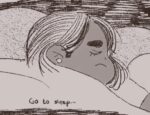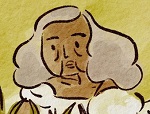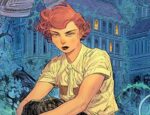If you’re in the mood for something gothic and gloomy, Aglæca by Mohnfisch will be right up your street. Artist and writer Mohnfisch, aka Michèle Fisch, draws heavy inspiration from fairytales, and the stormy gothic backdrop of Aglæca is reminiscent of the more gory Brothers Grimm fables. Fisch’s story begins on a dark and stormy night. A group of strangers meet at a remote castle, each carrying dark secrets that will be exposed as the evening unravels.
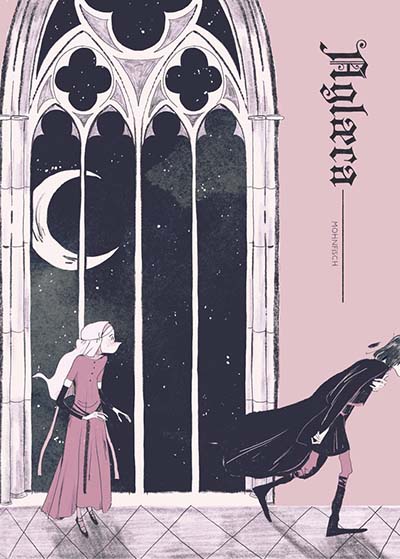
It’s not only beauty that lies in the eye of the beholder – ugliness does, too. A series of twisted, monstrous faces greet the reader within the first few pages of Aglæca; terrifying creatures with many heads and writhing dog-serpent hybrids jump out of the pages of a mythological book written in an unknown language. Perhaps this warns of the unknown horror to come. Meanwhile, as guests arrive at the looming castle, a boy hides in his bedroom fearing their revulsion.
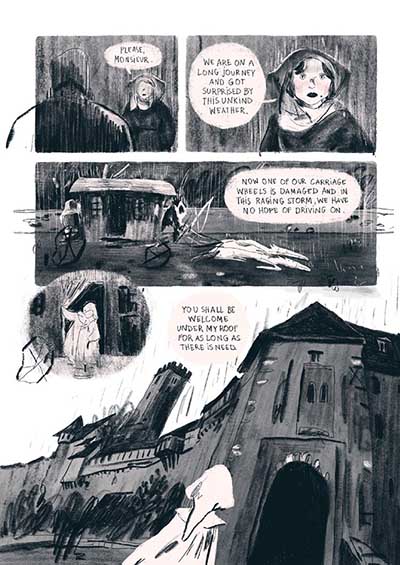
As we read on, we discover that the boy is cursed with a kind of illusion that masks his real face, reflecting the onlooker’s worst fears. It’s unclear why or how the boy has been cursed, only that he has been isolated all his life due to its effects. Think a dark mix of Gabrielle-Suzanne Barbot de Villeneuve’s Beauty and the Beast, in which the handsome prince is plagued to appear as a terrifying monster due to his lack of kindness, and The Prisoner of Askaban’s ‘bogart’, a magical creature that takes on the appearance of the one thing you are most afraid of. In this case, we’re completely left in the dark about the curse’s origins, or why the boy has been tormented with this fate.
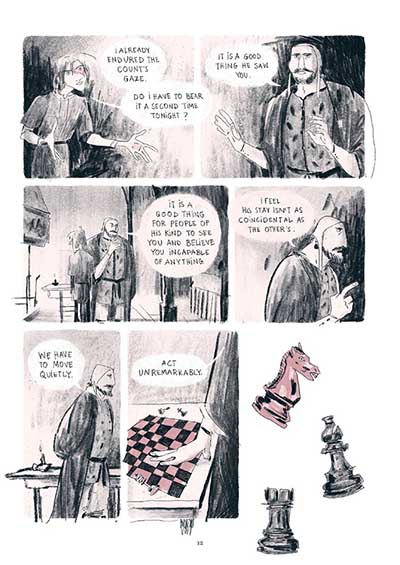
The boy’s distress due to this burden directly refers to the comic’s title, with the word Aglæca meaning torment and misery. Particularly used in reference to monsters or devils in old English, the noun is often attributed to a miserable wretch or a monstrous being, which gives us a little insight into the anguish Fisch is trying to portray through her secluded protagonist, who is unable to interact with the mysterious guests at his castle, anticipating their rejection.
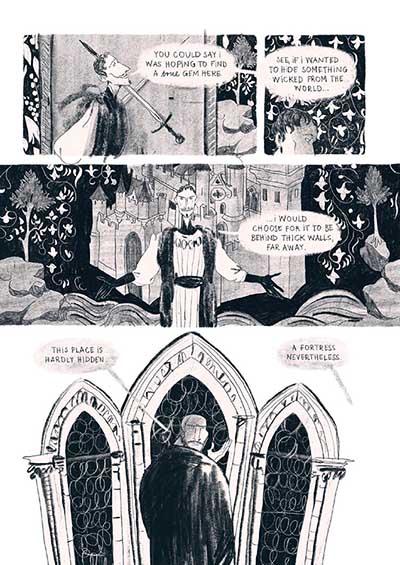
As the son of the king, tales of the reclusive boy’s fate have been passed around and exaggerated, with some deeming his curse the devil’s work. And there are those out there who are keen to snuff out any spark of what they think is witchcraft, including infiltrating the castle…
The reader never actually sees how the prince’s face appears to others; this aspect is left ambiguous, with Fisch choosing to shroud the horror from the reader’s eyes. This allows us to focus on the reactions of the surrounding characters to the dread before them, forcing the reader to imagine their own worst fears coming to life. The charcoal sketches make the whole comic feel wonderfully dark and gothic, with the scarce dabs of colour used strikingly, particularly during the ambiguous ending scenes.
Aglæca is available digitally throughout the rest of October from ShortBox Comics Fair.
Mohnfisch (W/A) • ShortBox Comics Fair, £8.00
Review by Lydia Turner








